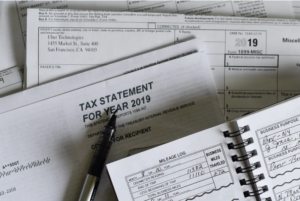Considerations When Dealing with a Lawsuit in a Foreign Country
Navigating the legal landscape can be daunting, especially when it involves a lawsuit in a foreign country. The unfamiliarity of laws and regulations can quickly turn an already stressful situation into a complex maze. Whether you’re on vacation or conducting business abroad, understanding your rights and responsibilities is crucial. As globalization continues to bridge gaps between cultures and economies, the importance of being informed about international law has never been greater. So, how do you protect yourself? What should you keep in mind as you navigate this intricate web of foreign legal systems? Let’s explore some key considerations to help guide your way through any potential legal challenges overseas.
Understanding Jurisdiction in a Foreign Country
Jurisdiction is a critical concept when dealing with legal matters abroad. It determines which court has the authority to hear your case. Each country has its own rules regarding jurisdiction, often influenced by local laws and international agreements. When you find yourself involved in a lawsuit overseas, it’s essential to understand whether the foreign court can claim jurisdiction over you or your situation. Factors such as where the incident occurred, and residency status play significant roles in this determination. Additionally, some countries may have specific provisions for foreigners that differ from their nationals. Navigating these intricacies requires careful attention to detail. Do not assume that what applies at home will be relevant elsewhere. Being informed about local jurisdictions can significantly impact how your case unfolds and which legal avenues are available to you.
Differences in Legal Systems and Processes
When navigating a lawsuit in a foreign country, understanding the local legal system is crucial. Each nation has its own laws and court structures that can differ significantly from your home country. For instance, common law systems rely heavily on case precedents, while civil law countries emphasize codified statutes. This fundamental difference shapes how cases are argued and decided. Moreover, procedural rules vary widely. Some jurisdictions may require mediation before any litigation begins. Others could have strict timelines for filing documents or responding to claims. Language barriers can also complicate matters. Legal terminology might not translate directly, leading to misunderstandings about rights and obligations. The role of judges varies as well; they might play an active part in questioning witnesses or determining outcomes differently than what you’re used to at home. Knowing these nuances will prepare you for the journey ahead.

Choosing the Right Legal Representation
Choosing the right legal representation in a foreign country is crucial. You need an attorney who understands both local laws and international regulations. Start by researching lawyers with experience in cases similar to yours. Look for those who specialize in the area of law relevant to your situation, whether it’s business disputes, personal injury, or immigration issues. Don’t underestimate the importance of language proficiency. Effective communication can make all the difference when navigating complex legal systems. Consultation meetings are essential. Use this time to gauge their expertise and approach. Ask questions about past cases and outcomes. Also, consider their familiarity with cultural nuances that could impact your case. A lawyer attuned to local customs may provide insights that others might overlook.
Conclusion
Navigating a lawsuit in a foreign country can be overwhelming. The complexities of different legal systems, along with language barriers and unfamiliar procedures, add layers of difficulty to your situation. This is why seeking professional guidance becomes essential. Dealing with any form of litigation is challenging, but doing so outside your home country amplifies those challenges. Professional support can make all the difference, turning potential pitfalls into manageable steps forward while safeguarding your interests every step of the way.…
Read More »

 When it comes to personal injury cases, one of the most important steps you can take is to seek immediate medical attention. This may seem obvious, but many people need to pay more attention to just how crucial it is. Even if your injuries appear minor or you’re unsure about the extent of your condition, seeing a healthcare professional should be your top priority. Why is seeking immediate medical attention so vital? First and foremost, it ensures that any injuries are properly diagnosed and treated promptly. Not only does this help prevent further complications or long-term damage, but it also establishes a clear record of your injuries and their connection to the accident.
When it comes to personal injury cases, one of the most important steps you can take is to seek immediate medical attention. This may seem obvious, but many people need to pay more attention to just how crucial it is. Even if your injuries appear minor or you’re unsure about the extent of your condition, seeing a healthcare professional should be your top priority. Why is seeking immediate medical attention so vital? First and foremost, it ensures that any injuries are properly diagnosed and treated promptly. Not only does this help prevent further complications or long-term damage, but it also establishes a clear record of your injuries and their connection to the accident. When you’ve been injured in an accident, it’s crucial to consult with an experienced personal injury
When you’ve been injured in an accident, it’s crucial to consult with an experienced personal injury 

 Finally, when it comes to the public consumption of cannabis products, there are many different laws. Generally, it is illegal to consume marijuana in public or while driving a vehicle. Additionally, individual states may have additional restrictions, such as how and where cannabis can be consumed within the state. Always check local regulations before engaging in any public consumption. By understanding the laws surrounding cannabis, you can ensure that your business operates within all applicable regulations. Always check with an attorney if you have any specific questions or concerns about cannabis-related laws.
Finally, when it comes to the public consumption of cannabis products, there are many different laws. Generally, it is illegal to consume marijuana in public or while driving a vehicle. Additionally, individual states may have additional restrictions, such as how and where cannabis can be consumed within the state. Always check local regulations before engaging in any public consumption. By understanding the laws surrounding cannabis, you can ensure that your business operates within all applicable regulations. Always check with an attorney if you have any specific questions or concerns about cannabis-related laws.
 One of the most important things you can do to prepare for divorce mediation is to educate yourself on the process. This means that you need to understand how mediation works and what it entails. You can do this by reading books or articles about divorce mediation or speaking with an attorney specializing in this area.
One of the most important things you can do to prepare for divorce mediation is to educate yourself on the process. This means that you need to understand how mediation works and what it entails. You can do this by reading books or articles about divorce mediation or speaking with an attorney specializing in this area. If you have children, it is essential to consider their needs during mediation. What kind of parenting arrangement do you want? How will child support be handled?
If you have children, it is essential to consider their needs during mediation. What kind of parenting arrangement do you want? How will child support be handled?


 So, let us begin with the basics: what exactly is DUI probation? When you are sentenced for a DUI, the court may place you on probation in addition to or instead of other penalties. Probation means that you must follow certain conditions during a set period, usually one to three years.
So, let us begin with the basics: what exactly is DUI probation? When you are sentenced for a DUI, the court may place you on probation in addition to or instead of other penalties. Probation means that you must follow certain conditions during a set period, usually one to three years.
 One of the essential qualities that lawyers must have is open-mindedness. It means that you are willing to consider all sides of an argument and understand multiple points of view. This is essential in the legal field because there are often many different interpretations of the law, and it is your job as a lawyer to find the best interpretation for your client.
One of the essential qualities that lawyers must have is open-mindedness. It means that you are willing to consider all sides of an argument and understand multiple points of view. This is essential in the legal field because there are often many different interpretations of the law, and it is your job as a lawyer to find the best interpretation for your client. Integrity is another essential quality for lawyers. It means that you are honest and trustworthy. Lawyers must be honest with their clients, and they must always act in the best interests of their clients. Integrity also means that you are reliable and can be counted on to do what you say you will do. If you have integrity, people will trust you, and they will be more likely to hire you as their lawyer.
Integrity is another essential quality for lawyers. It means that you are honest and trustworthy. Lawyers must be honest with their clients, and they must always act in the best interests of their clients. Integrity also means that you are reliable and can be counted on to do what you say you will do. If you have integrity, people will trust you, and they will be more likely to hire you as their lawyer. To have integrity, you must also have a strong sense of ethics. Lawyers must follow the rules of professional conduct, and they must always act ethically. This means that you will not engage in any dishonest or illegal activity, and you will always put your client’s interests first.
To have integrity, you must also have a strong sense of ethics. Lawyers must follow the rules of professional conduct, and they must always act ethically. This means that you will not engage in any dishonest or illegal activity, and you will always put your client’s interests first.
 There is nothing wrong with giving your injury claim to a lawyer who is straight out of law school. However, going for an experienced lawyer always has its perks. They are more likely to know all the loopholes in the law and weak areas of your case. This especially comes in handy because insurance companies always have a group of lawyers ready to get out of claims. With an experienced lawyer, you can win your case and get an even larger settlement than the company was willing to give.
There is nothing wrong with giving your injury claim to a lawyer who is straight out of law school. However, going for an experienced lawyer always has its perks. They are more likely to know all the loopholes in the law and weak areas of your case. This especially comes in handy because insurance companies always have a group of lawyers ready to get out of claims. With an experienced lawyer, you can win your case and get an even larger settlement than the company was willing to give. Ultimately, the best personal injury lawyer is one who fits your budget. Most of these lawyers work on a contingency basis. This simply means they calculate their fees based on the outcome of your case. A win for you is a win for them. However, confirm what percentage they will be going for. Usually, a contingency fee of about 30% should be appropriate.
Ultimately, the best personal injury lawyer is one who fits your budget. Most of these lawyers work on a contingency basis. This simply means they calculate their fees based on the outcome of your case. A win for you is a win for them. However, confirm what percentage they will be going for. Usually, a contingency fee of about 30% should be appropriate.
 While it varies from one business to another when they need to get the services of an attorney, it would help to establish a good relationship with an attorney early and start getting guidance and advice. As you work on your business formation, start contacting lawyers you consider can assist you with the business formation. Start to build a relationship with them and get to know their fees. You can factor those amounts into your budget.
While it varies from one business to another when they need to get the services of an attorney, it would help to establish a good relationship with an attorney early and start getting guidance and advice. As you work on your business formation, start contacting lawyers you consider can assist you with the business formation. Start to build a relationship with them and get to know their fees. You can factor those amounts into your budget. With most business lawyers, they can handle the common formation needs like drafting a Partnership Deed, forming an LLC, and other business legal needs like coming up with the most used business contracts. Sometimes you may have specific issues that need a lawyer with a specialization in given fields, such as tax law and intellectual properties like trademarks.
With most business lawyers, they can handle the common formation needs like drafting a Partnership Deed, forming an LLC, and other business legal needs like coming up with the most used business contracts. Sometimes you may have specific issues that need a lawyer with a specialization in given fields, such as tax law and intellectual properties like trademarks. It will help if you do not shy away from asking your prospective lawyer about the billing method for their services. On the other hand, the lawyer should also have no difficulty discussing their fees with you. The attorneys may charge hourly or a fixed amount for each service. However, a hybrid of hourly and fixed billing is the most applicable, depending on each case. The critical thing is for you as the client to be comfortable with whichever approach the attorney uses or chooses to apply when working with you.…
It will help if you do not shy away from asking your prospective lawyer about the billing method for their services. On the other hand, the lawyer should also have no difficulty discussing their fees with you. The attorneys may charge hourly or a fixed amount for each service. However, a hybrid of hourly and fixed billing is the most applicable, depending on each case. The critical thing is for you as the client to be comfortable with whichever approach the attorney uses or chooses to apply when working with you.…
 Both hemp and marijuana produce CBD. They belong to the same Cannabis genus. At the visual level, these plants share a lot of similarities. When it comes to chemical composition, however, the two plants have different amounts of THC levels. Marijuana has high levels of THC as compared to hemp. As a result, marijuana is illegal in most areas due to its very high THC levels.
Both hemp and marijuana produce CBD. They belong to the same Cannabis genus. At the visual level, these plants share a lot of similarities. When it comes to chemical composition, however, the two plants have different amounts of THC levels. Marijuana has high levels of THC as compared to hemp. As a result, marijuana is illegal in most areas due to its very high THC levels.
 Child adoption is not as easy as many people think. You need to go through a lot of legal processes before you can legally adopt a child. If you are working on other things, following the child adoption process can be difficult.
Child adoption is not as easy as many people think. You need to go through a lot of legal processes before you can legally adopt a child. If you are working on other things, following the child adoption process can be difficult.
 The number of corporate cases they have won in the court will guide you in choosing the best. You should also look at the period a particular attorney has been offering such services. One who has been around for long has the required level of expertise for the service. Most people will also look into the legal fees because some commercial attorneys are more expensive. Compare rates between each of them to settle for the best. There are several reasons why you should hire a commercial attorney. They include:
The number of corporate cases they have won in the court will guide you in choosing the best. You should also look at the period a particular attorney has been offering such services. One who has been around for long has the required level of expertise for the service. Most people will also look into the legal fees because some commercial attorneys are more expensive. Compare rates between each of them to settle for the best. There are several reasons why you should hire a commercial attorney. They include: There are several instances you may be involved in legal tussles that affect your business or employment in any way. A commercial attorney is the right person to represent you before the court. They will argue your case effectively and present all the evidence to prove why you are right. You should look for a commercial attorney to ensure your business or employment is on the right track.…
There are several instances you may be involved in legal tussles that affect your business or employment in any way. A commercial attorney is the right person to represent you before the court. They will argue your case effectively and present all the evidence to prove why you are right. You should look for a commercial attorney to ensure your business or employment is on the right track.… Studies show that content brings over 50% of visitors to the website and over 60% more leads. Therefore, when you create useful content, you can improve the credibility of the law firm, which is vital for capturing potential clients. Remember that your website content can make or break you. You need to ask yourself what is the website’s overall message. Ensure your content is easy to read, easy to navigate, and list different areas of practice.
Studies show that content brings over 50% of visitors to the website and over 60% more leads. Therefore, when you create useful content, you can improve the credibility of the law firm, which is vital for capturing potential clients. Remember that your website content can make or break you. You need to ask yourself what is the website’s overall message. Ensure your content is easy to read, easy to navigate, and list different areas of practice.

 Everyone may claim to have graduated from the top law school there is, even gone to an ivy league college and graduated at top of their class. That is no problem, however, the question is, are they qualified to practice law in the state or anywhere legally? One has to show proper documentation and papers to verify that are allowed to practice law. Good documentation means good representation and good representation comes with winning cases and settlements.
Everyone may claim to have graduated from the top law school there is, even gone to an ivy league college and graduated at top of their class. That is no problem, however, the question is, are they qualified to practice law in the state or anywhere legally? One has to show proper documentation and papers to verify that are allowed to practice law. Good documentation means good representation and good representation comes with winning cases and settlements. One has to be endowed with research skills to be able to investigate the case and follow the involved logistics. An attorney has to look into matters such as legal costs, medical covers, and costs, the claims, evidence, and witness. Being prepared for the case will be good as no argument presented when handling the case will ambush the attorney. Hence, guaranteeing a high chance of writing the case. …
One has to be endowed with research skills to be able to investigate the case and follow the involved logistics. An attorney has to look into matters such as legal costs, medical covers, and costs, the claims, evidence, and witness. Being prepared for the case will be good as no argument presented when handling the case will ambush the attorney. Hence, guaranteeing a high chance of writing the case. …



 divorce lawyer plays an important part to ensure your case goes through and wishes are granted. The role of a divorce lawyer includes:
divorce lawyer plays an important part to ensure your case goes through and wishes are granted. The role of a divorce lawyer includes: Most divorce cases always have a subject of contention, the most common one being who to take custody of the child. Divorce cases may be of two types which include contested and uncontested. A divorce lawyer is always available in all those cases to ensure their client get what they deserve through the right process.
Most divorce cases always have a subject of contention, the most common one being who to take custody of the child. Divorce cases may be of two types which include contested and uncontested. A divorce lawyer is always available in all those cases to ensure their client get what they deserve through the right process.

 When insurance companies or patients make payments, at times there can be miscommunications or miscalculations due to the overpayment to a healthcare provider. It is legal that you keep this surplus, but identifying and reimbursing the overpayment may be tedious for busy facilities. When the secondary payers and other entities contribute payments, it becomes more difficult. To protect its reputation in the community, a hospital may be slow in collecting significant debts from patients who are uninsured, but some overpayment discrepancies may lead to major legal complications and fees.
When insurance companies or patients make payments, at times there can be miscommunications or miscalculations due to the overpayment to a healthcare provider. It is legal that you keep this surplus, but identifying and reimbursing the overpayment may be tedious for busy facilities. When the secondary payers and other entities contribute payments, it becomes more difficult. To protect its reputation in the community, a hospital may be slow in collecting significant debts from patients who are uninsured, but some overpayment discrepancies may lead to major legal complications and fees.

 Remission is a law created to enforce the bondsman to cover all expenses from the state which were exhausted while pursuing a defendant. Although the bondsman may apply for refunds, the law allows the court to go against the bail bondsman if they fail to cover expenses used.
Remission is a law created to enforce the bondsman to cover all expenses from the state which were exhausted while pursuing a defendant. Although the bondsman may apply for refunds, the law allows the court to go against the bail bondsman if they fail to cover expenses used.